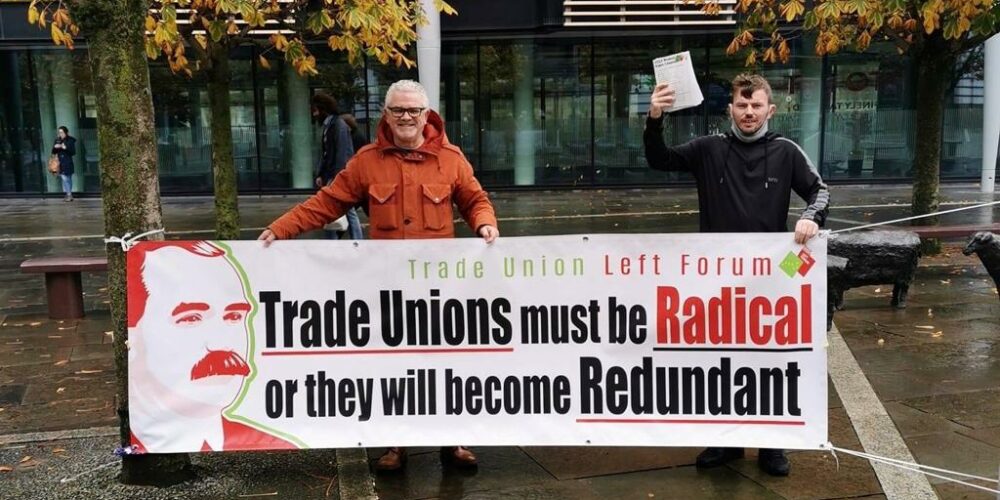With the developing narrative around the EU directive on adequate minimum wages, workers should not be duped into believing that the EU is some sort of a benign benefactor for workers’ rights.
The EU directive on adequate minimum wage claims to be an effort to reduce working poverty and inequality by improving the adequacy of statutory minimum wage as well as the promotion of collective bargaining. While the minimum wage is a safety net, for many workers the minimum wage becomes the norm, and in fact the de facto maximum wage for large numbers of workers.
This directive recognises that strong collective bargaining systems play an important role in ensuring adequate minimum wage protection. Increased collective bargaining without a comparable increase in Union membership and workers’ rights will not improve the balance of power between workers and employers.
In Ireland we have a collective bargaining rate of approximately 34% and union density of circa 28%. The aim of this directive is to increase collective bargaining to above 80% but not necessarily union membership. If there were a corresponding rise in Union density closer to that 80% figure this would empower workers in the workplace and as part of the wider social movement. Without it, it opens up a back door to social partnership.
“Legislation does not control the Lords of industry it is the Lords of industry that control legislation” – James Connolly.
There is now an opportunity for legislation around collective bargaining and workers’ rights to be discussed, debated and legislated for. We must ensure that this legislation goes far beyond collective bargaining rights. There are many within the trade union movement who would be happy to take up where they left off with social partnership. This is not in the best interest of workers or the trade union movement.
The Irish Congress of Trade Unions (ICTU) has described this EU directive as the most positive labour proposal to come out of Europe in the last two decades, ignoring its own policy, which was adopted following unanimous passing of the Dublin Council of Trade Unions motion by the delegates at the ICTU conference in 2021 which called for legislation to restore all rights lost as a result of the 1990 Industrial Relations Act (1990 IRA). This is a much more positive position than to legislate for collective bargaining rights alone.
Of course, while the ICTU are hip-hip-hooraying around this EU directive and looking to collective bargaining rights as a panacea for workers, their own policy on the 1990 IRA is being buried. Collective bargaining rights must be backed up by workers’ rights. To do both together would most certainly tip the balance of power back towards workers.
An increase in collective bargaining is to be welcomed, without a corresponding increase in Union membership, without Union recognition, and the right to strike it is but a trojan horse for social partnership for those liberal elements within the trade union movement to exploit and lower the aspirations demands and expectations of workers.
The trade union left forum have drafted the Fair Employment Bill 2022 (#FEB2022) to legislate for the commitments made at the ICTU conference of 20211.
The DCTU Motion adopted as ICTU policy unanimously at the 2021 conference states:
“Conference recognises that the restrictions on trade union action in the 1990 Industrial Relations Act need to be opposed, and that the Act should be reformed to restore rights which trade unions had before 1990. Conference mandates the executive to seek an alternative legislative regime which would allow trade union and industrial action for individual workers, for issues that concern workers across society and across employers, and for effective solidarity to workers in dispute.”
#FEB2022 provides for union recognition, access, rights for individual workers, puts control of ballots and notice of industrial action with unions, it broadens the reasons for industrial action and allows for solidarity actions and collective bargaining for all workers.
We need to go much further than collective bargaining rights alone and undo the damage created by the 1990 Industrial Relations Act, to give power back to workers and re-establish the trade union movement as a decisive Force for social change and the common good.
We must rebuild workers’ power and the trade union movement, not reinvent social partnership. Trade unions must be radical or they will become redundant!






